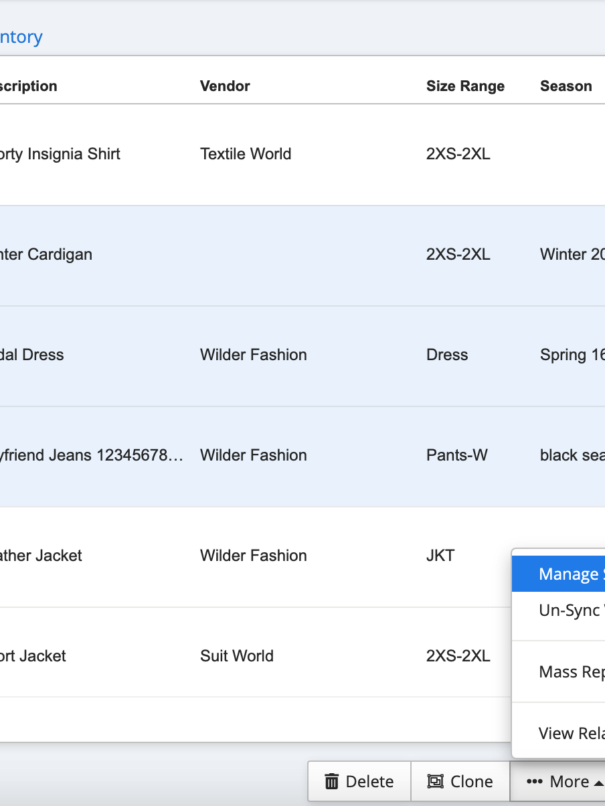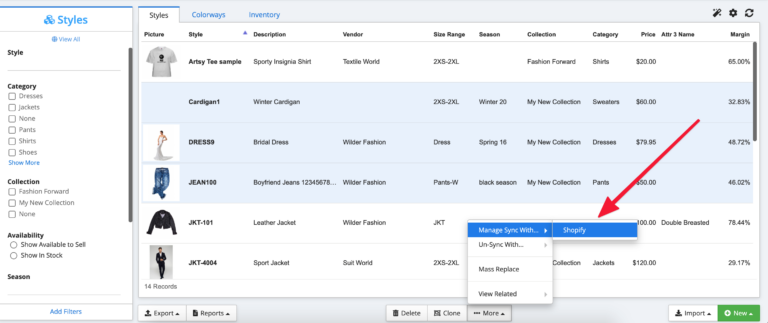In the apparel industry, survival depends on how well a brand can anticipate and respond to changing fashion trends. The role of human resources in understanding these trends cannot be overstated. Employees must be equipped with the latest information and tools to serve existing customers effectively and attract new ones.
Given the rapid evolution of the enterprise resource planning landscape, brands must keep pace and adapt accordingly. Today, ERP systems are not just about managing resources; they also offer embedded analytics, giving businesses a competitive edge by providing them with insightful data to make informed decisions.
Moreover, the business journey has been transformed by integrating artificial intelligence (AI) and mobile platforms into ERP systems, as well as optimizing business processes. AI aids in automating repetitive tasks, reducing errors, and improving efficiency. Mobile platforms allow employees to access information anytime, anywhere, enhancing flexibility and productivity.
So let’s explore how this software can help and how you can choose the best ERP brand.
Understanding the Apparel Industry’s Challenges
Consumer preferences in the apparel industry undergo rapid changes. With trends constantly evolving, brands must quickly adapt to stay relevant. However, predicting trends accurately and producing items that resonate with consumers can be a daunting task.
These challenges are further escalated by complexities in inventory management. Brands must strike a delicate balance between overstocking and understocking. Overstocking leads to increased storage costs and the risk of unsold stock, while understocking can result in lost sales opportunities and customer dissatisfaction.
Supply chain management presents another significant challenge. Ensuring a smooth flow of materials from suppliers to production facilities to retail outlets requires efficient coordination and communication, which can be difficult to achieve without a robust system.
The Benefits of Implementing ERP in Apparel Brands
Numerous benefits can be gained by implementing an enterprise resource planning system in an apparel brand. One such benefit is enhanced operational efficiency. If you find the right ERP brand, for instance, ApparelMagic, you can enjoy the following advantages:
- Integration of various business functions into one platform
- Streamlining processes and improving coordination among different departments
- Increased agility, enabling brands to respond quickly to changes in the market
These benefits ultimately lead to improved overall performance and competitiveness for the brand.
Another significant advantage of ERP systems is improved inventory management. They provide real-time updates on inventory levels, helping brands avoid overstocking and understocking. Additionally, ERP systems can predict future inventory requirements based on historical data, contributing to more effective inventory planning.
ERP systems also have the potential to speed up the market introduction of new trends. By streamlining processes from design to production to distribution, ERP systems can reduce the time it takes for a product to move from the design stage to the retail store, giving brands a competitive edge.
Innovation in product design and development is also fostered by ERP systems. By integrating systems, they facilitate seamless information sharing among teams, sparking new ideas and innovative solutions. This allows brands to create unique products that stand out in the market.
ERP systems, such as ERP software systems, also offer a multitude of other benefits, such as improved financial management, better customer relationship management, and enhanced data management, to name just a few examples. Thus, they add immense business value and can significantly transform business models in the apparel industry.
Key ERP Solutions for the Apparel Industry
Several ERP solutions, specifically designed to cater to the needs of the apparel industry, are available. Leading among these is ApparelMagic.
Offering user-friendly interfaces, these solutions simplify system navigation and task performance for employees. They also offer comprehensive management features, such as inventory management, sales and distribution, and financial management, among others, providing an all-in-one business management software solution for managing various aspects of the business.
Another significant feature of ApparelMagic ERP is its scalability. As a brand grows, its business requirements also change. This ERP solution can easily scale up to accommodate growth, ensuring that the system remains effective even as the brand expands.
To conclude, the success of an apparel brand hinges on the choice of the right ERP solution. It not only helps in managing operations efficiently but also provides a competitive edge, helping brands stay ahead in the fast-paced fashion industry.
Choosing the Right ERP Brand
Certain features are a must-have when considering an ERP system for an apparel brand. Look for an ERP brand that offers the following systems:
- Inventory management
- Warehouse management functionality
- Electronic Data Interchange (EDI) services
- Material requirements planning
- Cloud-based options for scalability and accessibility
These features enable brands to manage their core business processes efficiently and make informed decisions.
It’s also vital to choose a vendor that offers a partnership approach. This means the vendor doesn’t just sell the software but also provides support and guidance throughout the implementation process. This can be tremendously helpful, especially for brands that are new to ERP.
Additionally, the vendor should possess a deep understanding of the apparel industry. This enables them to anticipate potential challenges and offer solutions that are tailored to the brand’s specific needs.
Finally, comprehensive support is of utmost importance. Issues and challenges are inevitable during the implementation and use of an ERP system. A vendor that provides prompt and reliable support can help resolve these issues quickly, ensuring that the system continues to operate smoothly.
Leveraging ERP for Supply Chain and Operational Excellence
In the apparel industry, ERP can play a vital role in addressing supply chain inefficiencies. It provides a holistic view of the supply chain, enabling brands to:
- Track materials from the point of origin to the point of consumption
- Gain greater control over their supply chain
- Avoid disruptions
- Improve efficiency
Additionally, brands can achieve their operational and financial goals with the help of ERP. By streamlining processes, improving coordination among departments, and providing insightful data for decision-making, ERP systems can significantly enhance operational efficiency and financial performance.
In the modern retail landscape, mastering omnichannel fulfillment is crucial for enhancing customer service. ERP systems enable brands to manage inventory across multiple channels effectively, ensuring that products are always available to meet customer demand. This improves customer satisfaction and boosts sales.
To conclude, significant improvements in supply chain management and operational excellence can be achieved by leveraging ERP. This, in turn, can enhance customer service, boost financial performance, and give apparel brands a competitive edge.
Summary
Adapting to the fast-paced fashion industry calls for robust and efficient systems. Through ERP transformation apparel brands can stay ahead and always ensure competitiveness. As we’ve discussed, it enhances operational efficiency, improves inventory management, accelerates speed to market, and fosters innovation.
Moreover, choosing the right ERP solution and leveraging it effectively can lead to supply chain and operational excellence. It is indeed a game-changer for apparel brands seeking sustainable growth and competitiveness.
Frequently Asked Questions
How can I make my clothing brand different?
To make your clothing brand different, focus on developing a unique brand identity, targeting niche markets, building a strong online presence, and emphasizing your unique selling point. It’s also important to create a positive customer experience and establish strong relationships while maintaining a sustainable business model within the fashion industry.
How do you rebrand a fashion brand?
To rebrand a fashion brand, focus on creating fresh messaging, updating visuals, and introducing new slogans to convey the brand’s new message and philosophy clearly to customers. It’s crucial to ensure that the rebranding efforts signify a substantial change, beyond just the name.
How does ERP help in transforming your apparel brand?
ERP software is designed to help organizations manage various business activities such as accounting, procurement, project management, and supply chain operations, providing support for running the entire business effectively.
What are the challenges faced by the apparel industry?
The challenges faced by the apparel industry include fast-paced changes in consumer preferences, inventory management complexities, and supply chain management issues. Adaptation and efficient management are crucial in addressing these challenges.
What are the benefits of implementing ERP in apparel brands?
Implementing ERP in apparel brands can result in enhanced operational efficiency, improved inventory management, accelerated speed to market, and innovation in product design and development.









